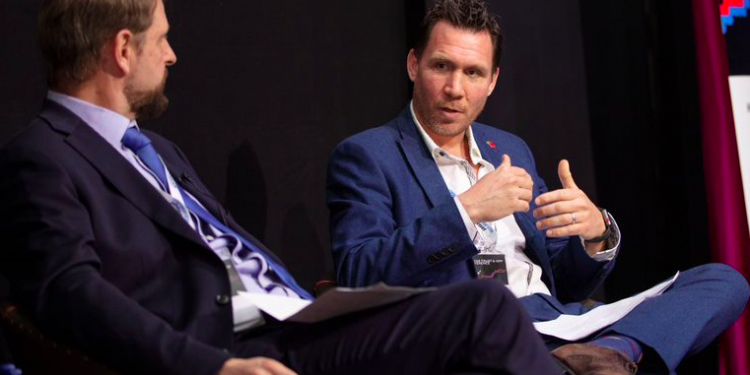Hybrid DB/DC schemes have “dodged a bullet” by avoiding being part of the new value for money (VFM) requirements, according to leading pension consultants.
Talking at a panel debate about consolidation in the DC market, Aon head of DC solutions Tony Pugh said he welcomed these new VFM rules, which require trustees of schemes of less than £100m to demonstrate and evidence that they are providing value for money on a number of metrics, or else consider consolidation with a larger provider.
But he added that he was “very surprised” that hybrid schemes can mix DB and DC assets to go over the £100m hurdle.
He said that from his previous consultancy experience: “Every trustee board has good intentions to look after the DC section of these hybrid schemes. But in practice the focus of their attention is on the DB section.”
Barnett Waddingham partner Mark Futcher said these VFM requirements, plus a host of additional regulations, such as TCFD reporting, were helping to drive consolidation in the DC market.
“Trustees are starting to understand that they have to be much broader in what they are now governing. It’s no longer a pension contract, it’s a sort of glorified savings arrangement.
“But what the trustees are there to do is actually look after members and deliver a plan that is in their best interests, and is going to provide them with the type of retirement income they want.” He added that these wider compliance factors are leading trustees towards consolidation, with master trusts in particular seen as a solution, particularly as they have dedicated resources to help tick off these additional compliance issues.
Pugh agreed that he was concerned that some of the new regulations coming in aren’t always targeted at improving member outcomes. “They might be for the greater good. They’ve all got a purpose and are obviously helping the wider economy and environment.
“But at the end of the day it is first job of trustees is to deliver for members.” He said as a result of this increased burden, some trustees were “rather reluctantly calling time on running their own trust and looking at consolidation options.
Both panellists agreed that consolidation is expected to pick up pace over the next year or so, with master trusts looking to win business from single-trust schemes in particular. Futcher said that most of these schemes are unlikely to look at switching again within the next five to 10 years, so providers are going all out to win this business. “It’s a very, very competitive environment out there at the moment. It’s a land grab because providers are trying to build these assets. There are some crazy offers in the market.”
He gave examples of one provider offering to pay a £700,000 penalty on a previous with-profits contract, another offering to pay for advisory sessions to all members coming up to retirement with a third party company, alongside other offers of a partner scheme for employee friends and family.
However Pugh said that these “too good to be true offers” can start to look like red flags. “For me if providers are throwing the kitchen sink at this I would ask why? Is their proposition not good enough to stand on its own feet? I’d also ask what this means for the sustainability of the solution. Does this mean they are not going to give great service down the line because they’re not making any money on the scheme?”
Futcher added that is was important for clients to understand what an exit plan from a master trust would be, should they need it. Pugh agreed this was important. He said: “We’ve just taken on a scheme from another master trust and it wasn’t a particularly pretty process.”





